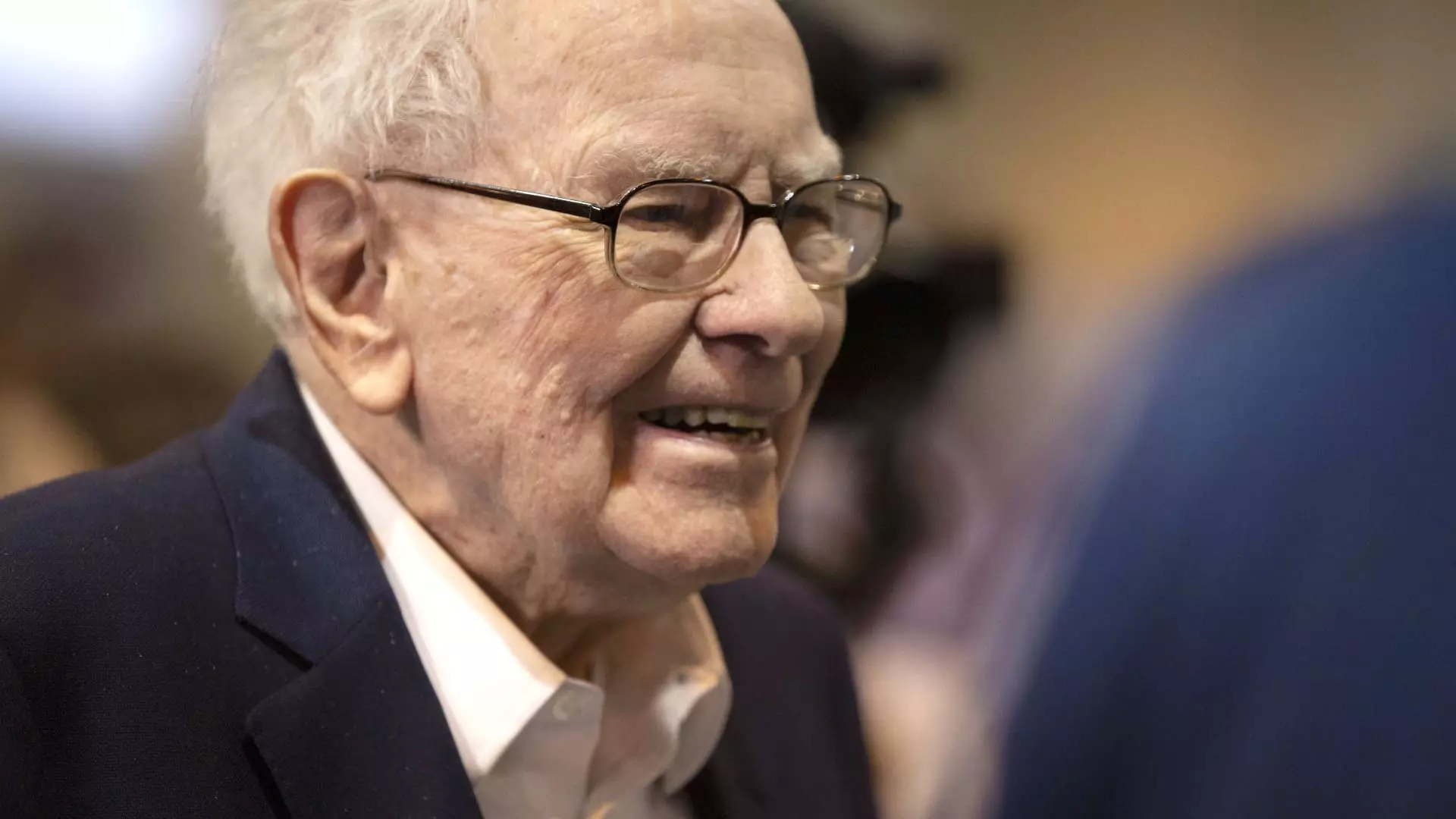Warren Buffett, the venerable CEO of Berkshire Hathaway, has stirred a pot of speculation and curiosity within the investment community following his latest quarterly activities and observations. At 94 years old, Buffett’s latest disclosures have left many wondering about his sudden defensive posture, particularly as he has been known for his long-term commitment to equities. Amidst uncharacteristic stock sales and ever-swelling cash reserves, which now sit at a staggering $334 billion, the question looms: is Buffett preparing for a significant market downturn, or is this simply a temporary phase in an otherwise bullish investment approach?
Buffett’s massive cash reserves raise eyebrows, especially when placed against a backdrop of an economy where interest rates are anticipated to taper off from their historical highs. This situation has essentially flipped the script on traditional investment strategies, where cash typically acts as a buffer during volatile market conditions. Rather than the aggressive investment moves one might associate with Buffett’s earlier years, he has recently opted to reduce Berkshire’s equity stake, net selling equities for the ninth consecutive quarter. In total, the conglomerate has divested over $134 billion in stocks in 2024 alone.
This peculiar shift brings forth multiple implications. For one, it prompts investors to question his confidence in the equity market, particularly highlighted by the shrinking values of Berkshire’s largest stakes—Apple and Bank of America. A defensive stance, in Buffett’s case, could suggest an anticipation of a market correction, or, perhaps, a more strategic approach aimed at positioning Berkshire to capitalize on future opportunities as they arise.
Buffett explicitly mentioned in his annual letter that despite his sizable cash position, the essence of Berkshire’s investment philosophy remains rooted in equities. Reflecting a steadfast resolve, he stated, “Berkshire shareholders can rest assured that we will forever deploy a substantial majority of their money in equities.” This conveys a striking dichotomy: while maintaining a preference for stocks, the heightened cash holdings suggest a tactical withdrawal from the market’s froth, possibly as a protective measure.
Such duality has sparked a discourse on whether the current stock valuations are genuinely reflective of fundamental economic realities or whether they are inflated bubbles waiting to burst. As Buffett himself noted, “Often, nothing looks compelling; very infrequently we find ourselves knee-deep in opportunities.” This sentiment encapsulates the cautious optimism that typically characterizes Buffett’s long-term strategies, and it also hints at underlying concerns about market stability.
In recent years, Buffett has hinted at a transition within Berkshire’s leadership, underscoring the capabilities of designated successor Greg Abel. By expressing a level of trust in Abel’s acumen to navigate complex equity decisions, Buffett appears to be not only preparing the company for future leadership changes but also establishing a foundation for a new era of investment strategy within the conglomerate.
The hands-off approach that Berkshire has adopted in repurchasing its shares—stopping buybacks altogether in the fourth quarter and continuing into 2024—also underscores this transitional phase. This serves as a parallel to the legacy of Buffett’s predecessor, the late Charlie Munger, within the company. The years of experience between both leaders may inform a more measured and judicious approach to scaling Berkshire’s operations moving forward.
Ultimately, Buffett’s recent moves could point to a merger of defensive strategy and long-term vision. While his substantial cash reserves and the sale of equities may seem alarmist to some, they are reminiscent of a seasoned investor analyzing the currents of a financial landscape fraught with uncertainties. Buffett’s reflections indicate he chooses measured action, even when the market appears buoyant, signaling a prudent wariness that can be valuable in safeguarding against unforeseen downturns. For shareholders looking for clarity, the best approach may be patience, as Buffett’s historical prowess suggests he may very well be setting the stage for future opportunities, even when the present conditions feel uncertain. The coming months will clarify whether this strategy signifies caution or merely a pause before the next wave of investment boldness—one thing is certain: in Buffett’s world, the focus on equities remains paramount, and the enduring wisdom he embodies will continue to shape Berkshire Hathaway’s trajectory.

